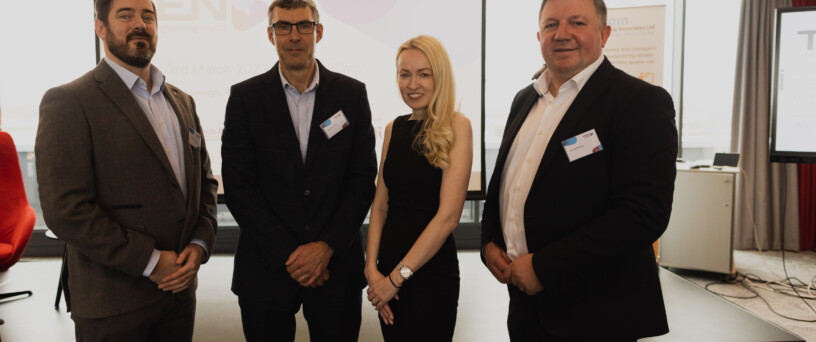
Explore topics
News > Chancellor Pressed On Post-Brexit Plan For Free Port As Mayor Wins Business Backing For A Pilot Project
Chancellor Pressed On Post-Brexit Plan For Free Port As Mayor Wins Business Backing For A Pilot Project
Tees Valley Combined Authority | Published on: 22nd January 2018
50 businesses and influential individuals have signed a letter from Mayor Ben Houchen to the Chancellor of the Exchequer backing a study into establishing a Free Port in Tees Valley.
Global firms with a base in the region, including Hitachi Rail, Sirius Minerals, Liberty Steel and Quorn Foods, have joined the call to Chancellor Philip Hammond. The letter aims to make the area a test case for the establishment of Free Ports following the UK’s withdrawal from the European Union.
Free Ports provide special freedoms to trade, within a specific area around a major port, Free Port status supports the expansion of international trade by offering exemptions from certain operational, regulatory and customs requirements. There are different models of Free Ports, which have operated successfully in many countries around the world.
Leaving the EU will enable Britain to capitalise on the Free Port opportunity to attract further investment, jobs and a stronger regional and national economy. Today, the EU Customs Union and EU State Aid laws make this almost impossible.
The bid has won local cross-party support with Middlesbrough South and East Cleveland MP Simon Clarke and Redcar MP Anna Turley backing the Mayor’s campaign.
Richmond Yorks MP Rishi Sunak authored a report on Free Ports for the Centre for Policy Studies in November 2016. It found that they could create more than 86,000 jobs nationwide.
Tees Valley Mayor Ben Houchen said: “When we leave the EU, Britain will find itself with more freedoms than at any time in almost half a century. Whether you voted leave or remain, we need to look to the future and at the opportunities that are ahead.
“Free Port status for Tees Valley will be transformational for local people. Not only would we become an international magnet for businesses wanting to set up here, it’ll also mean more jobs for local people.
“There is grit and a natural optimism in places like Tees Valley when it comes to Britain’s place in the world. We are and always have been an open, outward-looking part of the world, ready and willing to embrace new opportunities.
“Our industrial roots, current businesses and future plans for the world-class South Tees Development Corporation site mark us out as a manufacturing powerhouse to be reckoned with. So as we take back control of our trade policy, I want to ensure we capitalise on these new freedoms to ensure we’re best placed to benefit from all that Brexit brings.
“I am enormously grateful the campaign has secured such positive support from the business community and local politicians – particularly Simon Clarke MP who has been a passionate advocate in Parliament. We are all united in our ambition for our area, but now it’s time for the government to listen to us, look forward and embrace the merits of Free Port status.”
Jerry Hopkinson, PD Ports’ Chief Operating Officer, said: “We welcome this call for a pilot study into the viability of Free Ports. This significant work could represent a step-change in how we, and many other firms across the country, do business for the better. Having Free Port status would provide the opportunity to attract further inward investment, create a platform for growth and help to develop long-term sustainable industries for the Tees Valley and the local and regional economy.”
Paul Booth, Tees Valley Local Enterprise Partnership Chair, said: “The local business community is eager to see this exciting potential become a reality. It would rewrite the rulebook on what could be achieved in terms of growth.
“We need new solutions for a new era and evidence points to Free Ports being a successful way of supporting our local businesses and puts Tees Valley in a strong position to capitalise post-Brexit.”
Mike Matthews, Nifco UK Managing Director and a leading voice in the North East manufacturing sector said: “These plans are a boon to the manufacturing sector. Removing barriers to global trade will be transformative to our industry, allowing it to thrive.
“The Free Port scheme would put us on an equal footing with other world-leaders in manufacturing. It would also help us to give something back to the region with an increase in high-quality employment opportunities and further investment.”
Share this post



 Sticky Tab Content. Lorem ipsum dolor sit amet, consectetur adipiscing elit. Sed consequat fringilla efficitur. Fusce a lorem vel lectus rhoncus consectetur. Suspendisse ornare consequat diam.
Sticky Tab Content. Lorem ipsum dolor sit amet, consectetur adipiscing elit. Sed consequat fringilla efficitur. Fusce a lorem vel lectus rhoncus consectetur. Suspendisse ornare consequat diam.